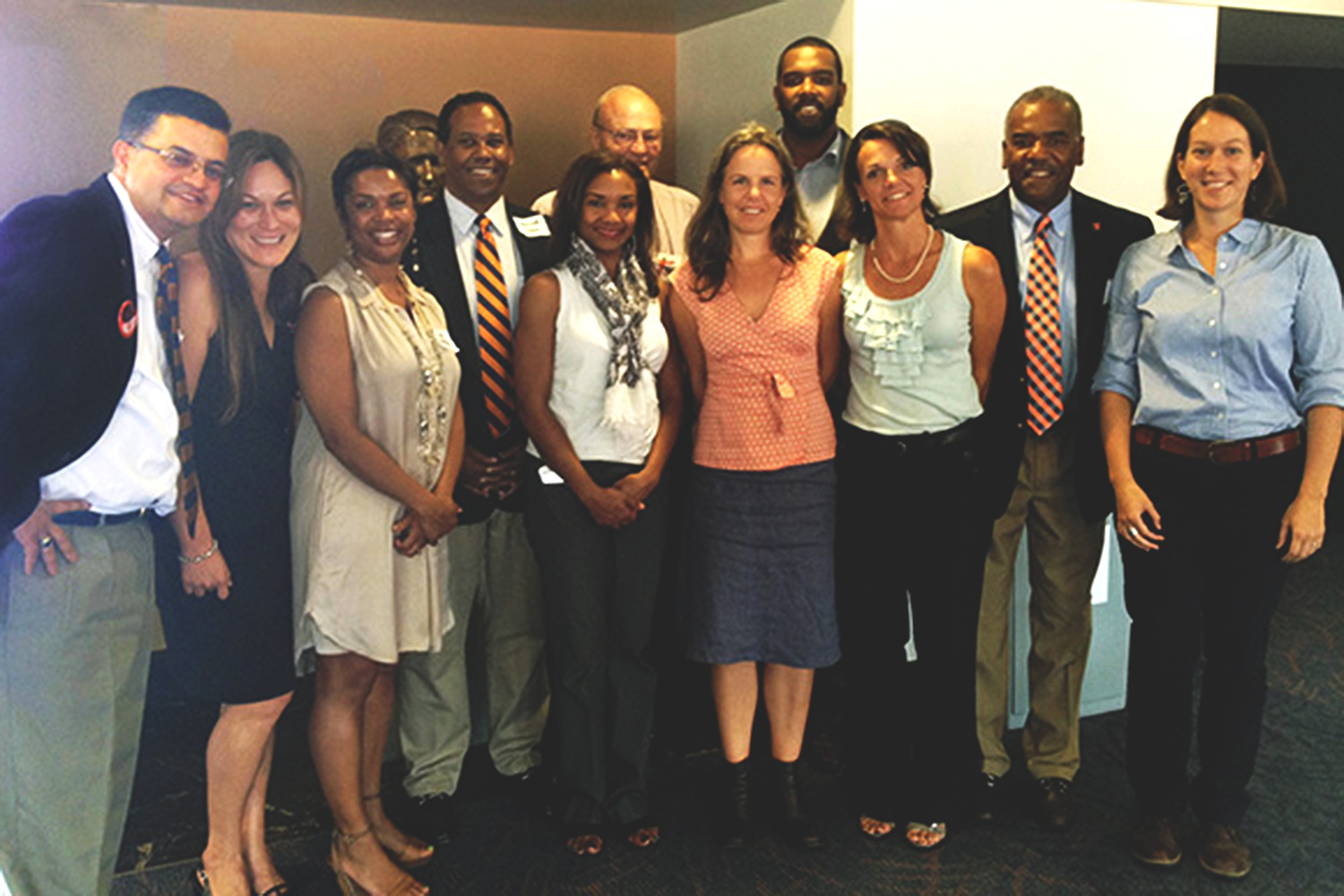For a decade, University of Virginia alumna Tina Paikeday has been fighting for diversity and inclusion among the historically whitewashed tech companies of Silicon Valley. Fellow alumnus Mauricio Velásquez has been doing the same in the marbled halls of the federal government, working with clients including the U.S. Supreme Court, the Department of Justice and the U.S. Postal Service.
After meeting as alumni trustees of UVA’s IDEA (Inclusion, Diversity, Equity and Access) Fund, Paikeday and Velásquez decided to merge their teams this summer, creating a coast-to-coast alliance committed to more vibrant, diverse workplaces.
The Talent Advisory Board, which Paikeday founded nearly 10 years ago, specializes in research and data analysis testing different employee retention practices and diversity strategies. Velásquez’s company, Diversity Training Group, is known for assessment and training programs that help companies put that research into practice – diversity training, harassment prevention training and coaching. After the merger, Velásquez will continue as CEO of the newly expanded Diversity Training Group. Paikeday will remain an adviser as she pursues a Ph.D. in management and organizations.
“We are a roomful of change agents discussing what conversations we should start next, what we should fund next. It is exciting to be in the middle of it.” -- Mauricio Velásquez, Vice Chair of the IDEA Fund
“Tina’s firm is very strong in analytical research, and she brings a West Coast perspective, whereas I have more of an East Coast perspective,” Velásquez said. “It was a natural fit.”
Both Paikeday and Velásquez began advocating for diversity as UVA undergraduates. Paikeday, a 1994 McIntire School of Commerce graduate, founded a cultural resource center and conducted a University-wide climate survey on multiculturalism that is still referenced today.
“I saw the power of data in moving things along and making change, albeit slowly,” Paikeday said. “That is really when my journey began.”
Velásquez, who earned economics and psychology degrees in 1998, led efforts to diversify UVA’s Greek system through the re-starting of his fraternity, Pi Lambda Phi, which had been inactive.
“I am happy to report that the Greek system is more inclusive and welcoming now, though I still think there is a lot of work to do. That is why I am on the IDEA board, to see what has changed at UVA and what can still change.” said Velásquez, currently vice chair of the IDEA Fund.
UVA’s IDEA Fund, overseen by 12 trustees and the Office for Diversity and Equity, provides grants promoting diversity at UVA. Past grants have financed programs aimed at recruiting minority and low-income high schoolers, supported studies of slavery at UVA and funded minority student organizations.
“We represent the entire spectrum of diversity issues and are trying to point out opportunities and present solutions, not just problems,” Velásquez said of the trustees. “We are a roomful of change agents discussing what conversations we should start next, what we should fund next. It is exciting to be in the middle of it.”

The trustees of the IDEA Fund gather at a recent meeting. The alumni group backs projects that promote multiculturalism at the University.
According to Paikeday, programs like the IDEA Fund are strong examples for universities working to encourage diversity.
“What UVA has been doing and how those strategies are being embedded even at the presidential level is a best practice that can be shared with others,” Paikeday said.
Both Paikeday and Velásquez firmly believe that organizations – whether state universities, tech firms or federal agencies – are better off when they make diversity and inclusion a priority.
“Diverse organizations are healthy organizations,” Velásquez said. “Among my clients, there is an acknowledgement that we can collectively do a better job of sourcing, hiring, developing and retaining a more diverse workforce, and that when you do that, organizations are healthier, more productive and more engaged.”
According to Velásquez, President Obama’s 2011 executive order promoting diversity and inclusion in federal workplaces prompted more government agencies to learn from each other and share strategies for improving their offices.
“I am seeing more sharing and collaborating within government now, whereas in the past many organizations did not want to tell others how they were doing,” he said. “A lot of federal agencies are doing great, interesting work and have made great strides, but we still have a long way to go.”
Paikeday also reports room for improvement on the West Coast, where African-Americans and Latinos are a small percentage of the technology workforce and female and Asian employees are often underrepresented in leadership roles.
“There is a clearly a pipeline problem in Silicon Valley, in terms of bringing in underrepresented minorities,” Paikeday said. “Among women and Asians, we are seeing a relatively steady pipeline in junior groups, but not at senior leadership levels, at least in the numbers you would expect.”
During her doctoral studies, Paikeday will examine how companies can improve their talent pipelines, in part studying data from UVA’s IDEA Fund. She hopes to study why different groups of students choose different career paths and how leaders can attract underrepresented groups.
“I have had a chance to see how diversity can impact innovation, and how bringing diverse perspectives together can help businesses come up with out-of-the-box solutions that impact the bottom line,” Paikeday said. “We need to promote that at an organizational level, and it is impossible to do that without training and grooming our leaders to be more inclusive in their mindset.”
Media Contact
Article Information
August 17, 2016
/content/alumni-join-forces-fight-diversity-silicon-valley-beltway

